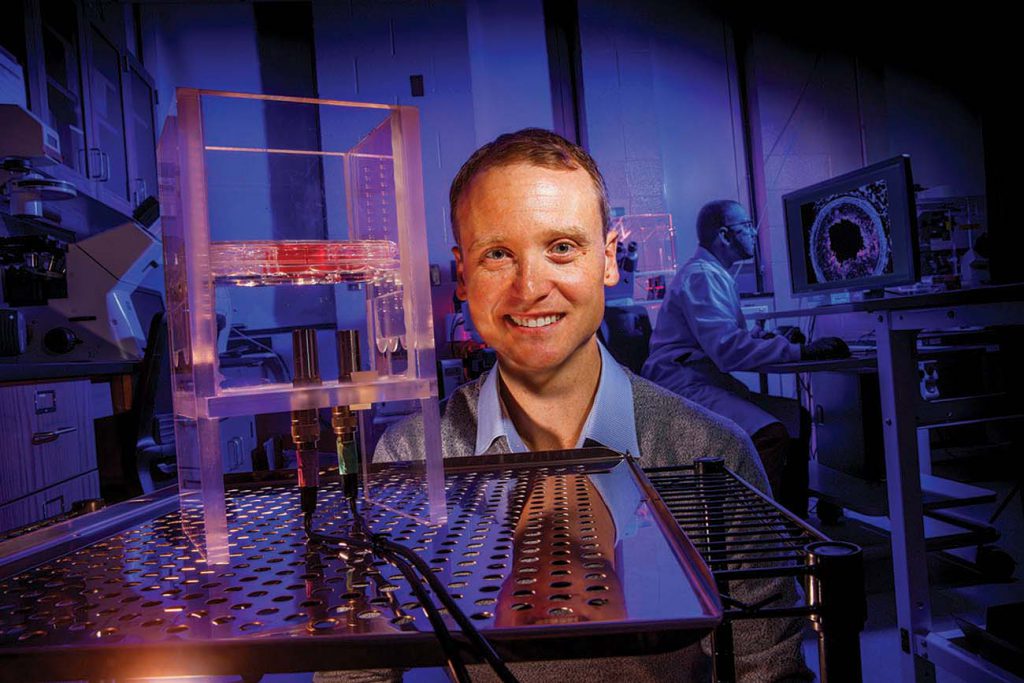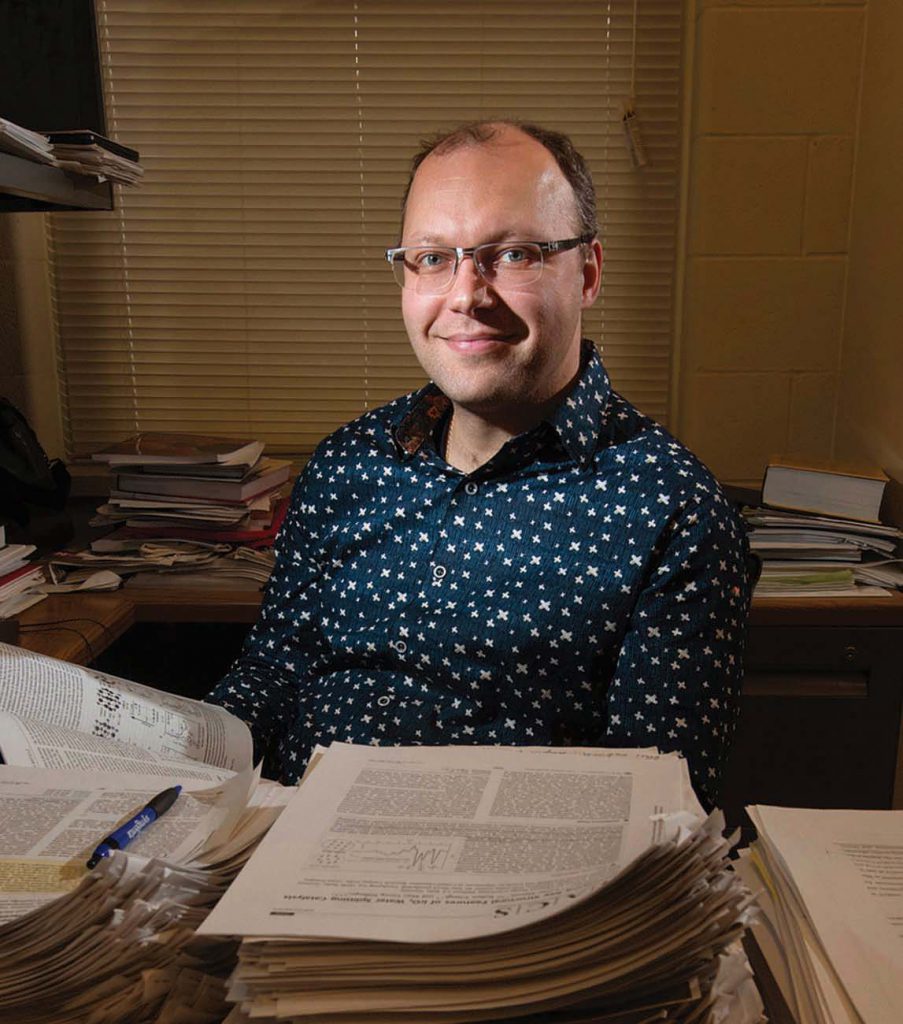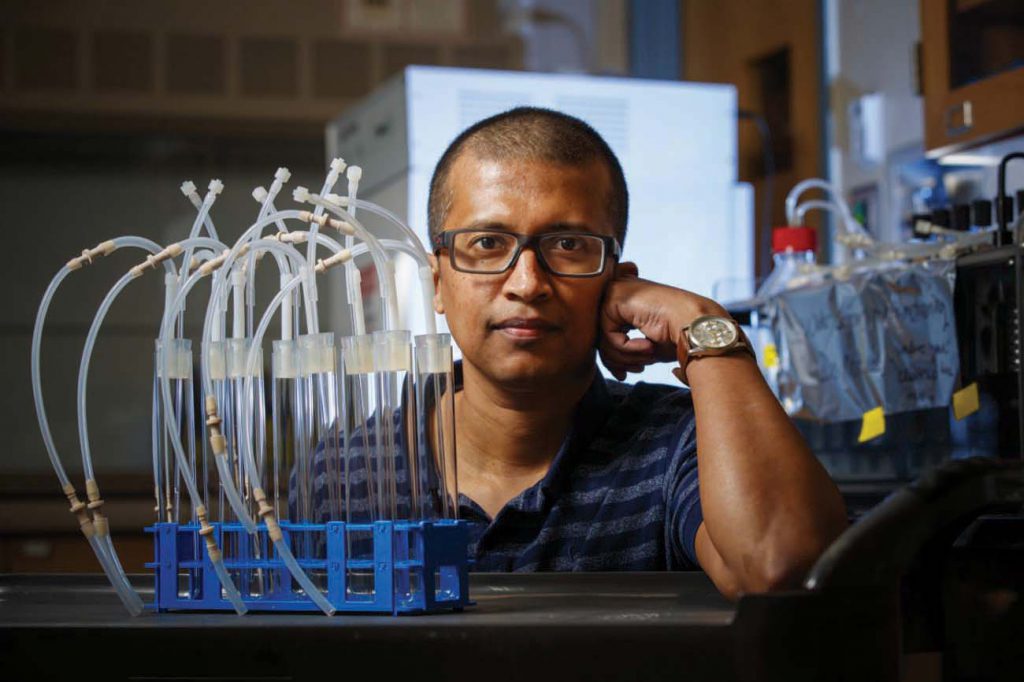
Promising Research Efforts Earn CAREER Awards
Nebraska researchers are seeking better ways to combat heart disease, improving nanomaterials’ stability and transforming excess plant material into useful products with Faculty Early Career Development Program awards from the National Science Foundation. In 2020, these Nebraska faculty earned these prestigious five-year awards that support outstanding pre-tenure faculty, totaling more than $1.8 million.
Treating Cardiovascular Disease with Ultrasound

Cardiovascular disease is historically the leading killer in the United States and a healthcare budget buster. A new treatment for one of its primary causes could help lower both those statistics.
Nebraska’s Ryan Pedrigi received a $543,000 CAREER award to explore a targeted, noninvasive treatment for atherosclerosis, which is plaque buildup in the inner lining of arteries.
Atherosclerosis currently is treated with statin drugs or stents. Statins don’t target the diseased artery, while stents are invasive and pose serious risks to patients.
Pedrigi, assistant professor of mechanical and materials engineering, envisions treating diseased arteries with ultrasound pulses, stimulating a cellular response that could reduce plaque buildup and prevent further accumulation.
He will start by studying how endothelial cells — the cells that form the inner lining of arteries — respond to low-intensity pulsed ultrasound. He hopes to identify the ideal ultrasound parameters for combating atherosclerosis.
For the project’s education component, Pedrigi aims to attract more women and other students from underrepresented groups to mechanical engineering.
Nebraska news release: Project explores ultrasound therapy to promote cardiovascular health
Probing How Nanomaterials Dissolve

Understanding how nano-crystals dissolve in water could lead to nanomaterials with improved stability and more controllable chemical activity.
Nebraska’s Vitaly Alexandrov, assistant professor of chemical and biomolecular engineering, aims to advance basic understanding of these chemical processes.
“It’s well known that (nanomaterials’) dissolution may play both beneficial and detrimental roles,” said Alexandrov, who received a $520,244 CAREER award.
Dissolution can aid in processing and recycling materials, but it also causes corrosion and degradation of alloys and photo-electrocatalysts and decomposition of hybrid organic-inorganic solar cells and pharmaceuticals.
Better understanding how nanomaterials dissolve will help scientists better process and recycle the materials, identify the conditions that will enable them to drive dissolution along preferable paths and aid design of materials less prone to dissolution. Alexandrov conducts his research through the Nebraska Center for Materials and Nanoscience.
Nanomaterials have widespread applications, including medicine, aerospace, batteries, magnets, televisions, computers, weapons and insulation.
Nebraska news release: Alexandrov using CAREER award to study liquids’ effects on nanomaterials
Transforming Plant Waste with a Microbe

In addition to producing lots of corn, Nebraska farmers produce lots of plant waste. Much of it goes toward ethanol, but Nebraska’s Rajib Saha is studying how a bacterium could break it down for other uses.
Saha, assistant professor of chemical and biomolecular engineering, is working with Rhodopseudomonas palustris, a purple non-sulfur bacterium noted for its ability to switch among four different types of metabolism. That versatility makes it ideal for breaking down lignin and transforming it into two substances. One can be used to create biodegradable plastics and the other to synthesize polymers widely used in textile production.
With a $747,855 CAREER award, Saha’s team will use computational modeling and experimental approaches to understand how this organism adjusts its metabolism in response to environmental changes.
“At the end of the day, it’s built on something that is a waste in our state and is abundant in our state,” Saha said.
Nebraska news release: Saha studying versatile bacterium’s role in breaking down plant waste
